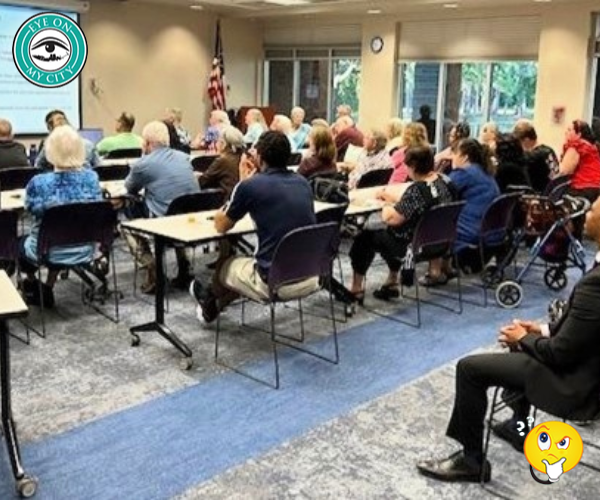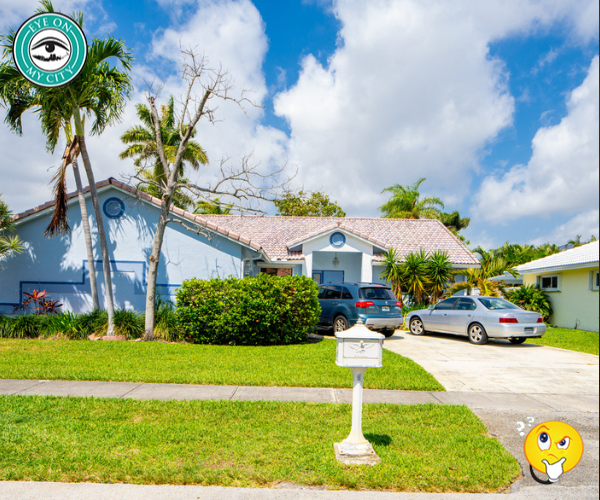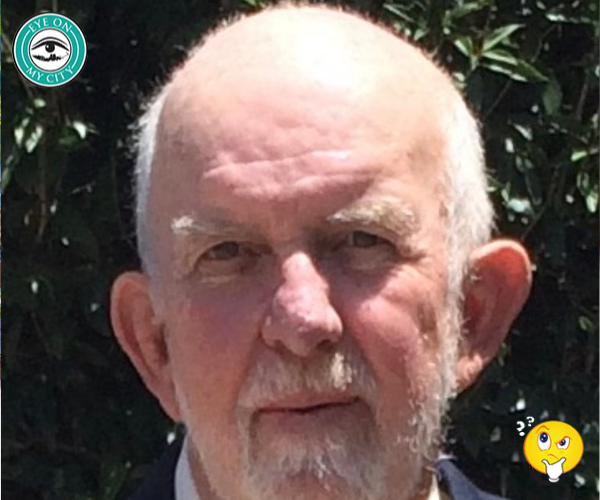Several local citizens who say they are concerned about property rights in Jacksonville packed a room at the Southeast Regional Library to learn more about what they can do for themselves and their neighborhoods.
The presentation, sponsored by the Republican Liberty Caucus (RLC) of Florida, was the first in a series slated to include such topics as code enforcement, contamination through the county, land grabs by Tallahassee for development, and the impact of inspections and permitting problems and delays on businesses and our local economy.
“Property Rights have become a huge issue in the last few years as development encroaches into every part of the county and as Tallahassee continues to pull development decisions away from county control,” said Karyn Morton, state vice chairman of the RLC, who organized the event. “There are people throughout this county who would make their voices heard if they were aware of major issues concerning these processes as it effects their property rights, and we strive for public awareness so the people can speak out, make their voices heard and make a difference.”
Some of the attendees expressed anger about the current state of property rights in Jacksonville.
“I attended this presentation to gather information about the issue of irresponsible and/or negligent, or even reckless, development in the city of Jacksonville,” said Dennis Sanchez, a broker/associate with Home Place Realty. “The laws are designed to diminish the power of the planning and development department and offer full power to the City Council who are not qualified to make such decisions.”
Sanchez added that there needs to be a balance of power between the City Council and the City Planning and Development Department.
“The City Council has reserved all of the power to approve development projects, even if they are not qualified to make those decisions,” he said. There needs to be a balance of power between the Planning and Development Departments and City Council because it seems the City Council is making ignorant decisions causing harm and affecting the quality of life of the current residents.”
Southside Estates resident, Lisa Ellen Dirnberger said her neighborhood is fighting to protect their private property.
“Our voices are being silenced by politicians, the Planning Department and developers, Dirnberger said. “It is dangerous to acquiesce to rezoning decisions made by people who do not live in the area to be rezoned. We have a fundamental Constitutional and God-given right to protect our private property, and this is what my neighborhood and I are doing.”
Joe McClure, founder of The Coalition to Build a Better Jacksonville and presenter for the session on property rights, told the audience that as long as the city generates most of its revenue from property taxes, it will always be seeking new development but not necessarily good development.
“Traditional single-family homes are not protected because multi-family, commercial, and industrial projects pay much higher property taxes and fees,” McClure said. “The City Council needs to get out of the rezoning business and focus more on improving essential services like public safety, filling potholes, and bringing better jobs to our neighborhoods, not just the favored few.”
“Joe has a vast and deep knowledge base concerning planning, development, licensing, inspections & permitting within Duval,” Morton said. “These seminars can be a springboard for more visibility, and I intend to follow these sessions up with online videos, podcasts and articles to make a bigger impact.”
The local Duval Chapter of RLC meets every second Monday at Culhane’s Irish Pub, 9720 Deer Lake Court. Gatherings begin with a social at 6 p.m. followed by a meeting and program to discuss various topics, politics, and elections beginning at 7 p.m.
The RLC also has active chapters in Clay, St Johns, Bradford, Alachua, Lake, Putnam, Flagler and Volusia counties in Northeast Florida. A total of 37 chapters are in operation statewide.
A presentation at the meeting listed things that could be done to protect neighborhoods.
- Organize, grow, and strengthen neighborhood associations
- Track and acquire properties owned by non-residents (occupied by renters)
- Track and acquire nearby non-residential properties so that you can control their current and future development.
- Track new zoning applications on the City Zoning Portal, giving you 4 to 6 months warning, rather than only a couple of weeks. (Usually, residents find out about new developments when signs are placed on property boundaries, or when notification is received in the mail. This only gives most communities a couple of weeks to take action.)
- Attend CPAC (City Planning Advisory Committee), Planning Commission, LUZ (Land Use and Zoning Committee), and City Council meetings.
- Hold your elected officials accountable for how they vote on rezonings. There is likely a pattern you need to know about before the next election.
- Spotlight bad behavior by your elected and appointed officials and know who donated to their election campaigns.
- If problems get worse, consider forming a non-incorporated town.










